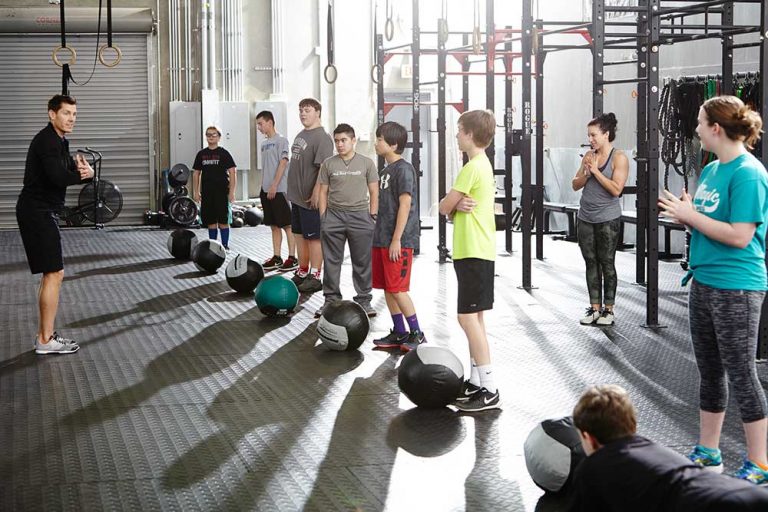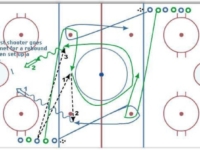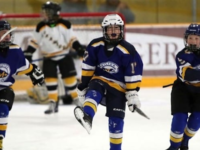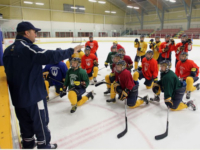It’s become common in today’s hockey world, no matter the age or skill-level of a player, to do more than just attend practices and games to get better at the sport. Many players look for additional ways to improve outside of the rink so that they can rise above the competition and hopefully advance. In fact, it can almost feel necessary to find extra ways to enhance your hockey skills to stay relevant because others are doing it too.
Some players choose to buy books, some watch and analyze game footage, and some hit the gym in their spare time to keep their bodies in peak physical condition. While these are all valid, helpful methods for improving at hockey off the ice, one of the most popular methods nowadays is to hire an off-ice development trainer.
These development trainers can be hired by a player or their guardian (depending on the age) for personal training or hired by a coach to train an entire team. Depending on their experience and field of knowledge, the trainer will teach the player/team everything they know about a specific set of skills. If you find a great development trainer, you’ll be able to see outstanding improvement in your hockey abilities.
But what makes a great off-ice development trainer? How do you know which one to hire?
Yes, selecting an off-ice trainer can be difficult. There are many available for hire, and they all seem to teach the skill you’re looking for. There are some sure-fire ways, however, to separate the good off-ice development trainers from the great ones. Here’s what to look for:
Location
The first thing to think about in terms of hiring a development trainer is their location. Some will require their clients to travel to them, and others will offer to travel to the client to perform their training.
If you’re looking to hire the trainer for individual sessions, make sure you’re willing to travel to where they’re located if need be. If you’re looking to hire a trainer for a team, then finding one even closer is paramount. The farther away your team needs to travel from their home arena, the fewer kids will be able to participate in the program.
Price
In terms of price, it’s important to find a balance. Of course, you want the development trainer you select to fit your budget.
At the same time, price is (usually) directly related to quality. The more expensive a trainer costs, the better their training sessions will often likely be. Don’t skimp out and hire the cheapest development trainer you can find just to save a few bucks. Chances are, you’ll be disappointed with what you end up getting from them.
So, find a good balance for price. Some development trainers charge on a consultation basis, and others have a flat fee. As a baseline, a price of $100-$150 for a session or $500-$1000 for a week-long camp is moderate.
Testimonials and References
One of the most accurate ways to predict the quality of an off-ice development trainer is testimonials from their former clients.
If a trainer says they offer a professional training program but 80% of their clients say it was overpriced and disappointing, then they’re probably not a good bet. On the other hand, if a trainer is new to the industry and doesn’t seem to have much experience but all their clients praise the training sessions, then they’re probably worth a try.
You can also look at the clients, themselves. Does the development trainer boast a roster of NHL clients or high level athletes? A coach’s client base will say a lot about the quality of their work.
References are also a must! Ask your coach, instructors & teammates who they would recommend. This is often the easier and quickest way to find who you’re looking for!
Credibility
There’s a massive difference between a development trainer who watched a couple years’ worth of hockey games before starting work and a trainer with two bachelor’s degrees in kinesiology and biochemistry.
Now, education isn’t the only thing an off-ice development trainer needs to be exceptional—-they also need skills like charisma, creativity, and passion. But education and work experience make a huge difference, nonetheless.
When choosing an off-ice development trainer, make sure to check their credibility.
Look at how much work experience they have; how long they’ve been in the business. Look at their education, or where they learned their trade from. Look at the level they consistently teach at—-are they training peewee players, or do they teach at an NHL-level? If any of that information is difficult to find or unavailable, then ask!
Specialty
One straightforward factor to consider when selecting an off-ice development trainer is their specialty. If possible, find a trainer that specifically works with athletes, and preferably hockey players.
Before you select the trainer, think about exactly what you want from them and their program. Identify the key skills you want them to work on with your player or team, then consider how closely the programs they offer match up with the skills you want them to teach.
And that transitions perfectly into the last factor.
Available Information
When choosing your off-ice trainer, look at how much information is available about them and the programs they offer.
Good information to watch out for is:
- A biography of the trainer, with education, work experience, and history in the industry
- A breakdown of their program material
- Sample videos of the programs in action
- Testimonials from former clients about the programs
The more information that’s available to you, the more informed a decision you can make about whether to hire that off-ice development trainer. And, in general, the more transparent the program is, the more trustworthy and excellent it is.
With all that said, best of luck picking your off-ice development trainer. Remember: With enough time, finding the perfect one can potentially turn any average hockey player into a great one!





